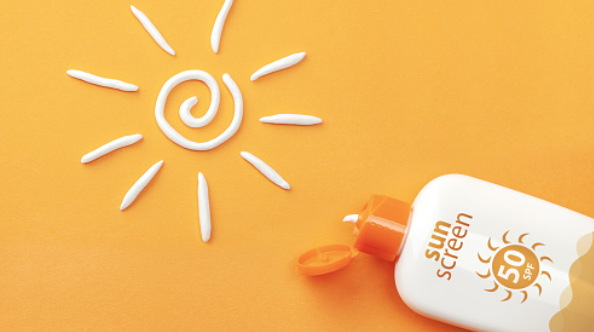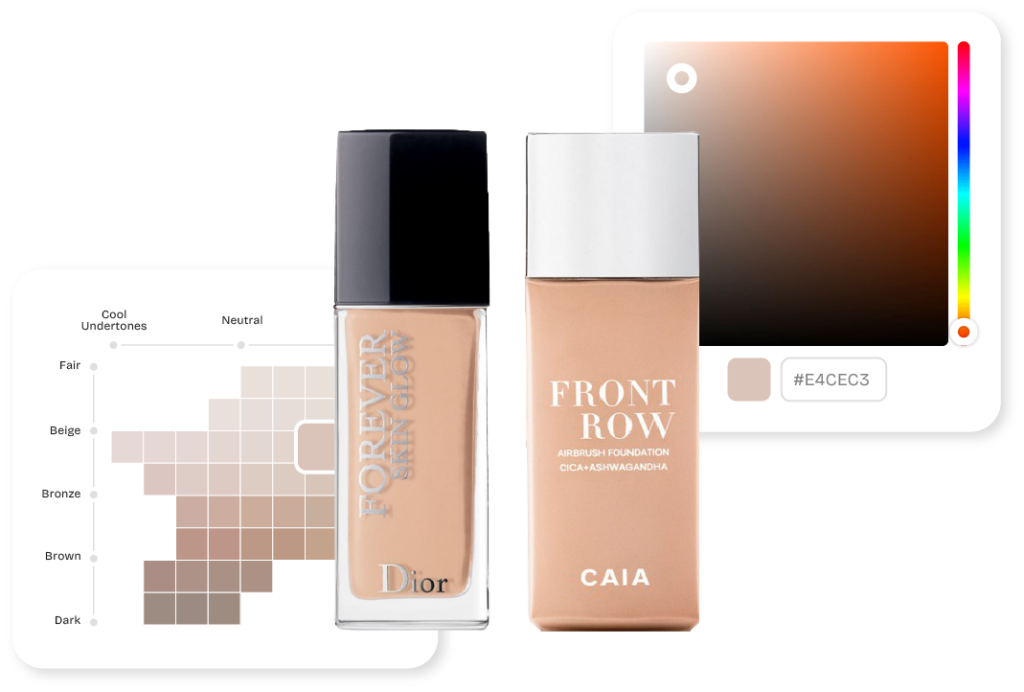How AI for beauty can benefit your Clean SPF brand

Product category
Author
For some reason SPF has been overlooked, sure some brands have included an amount of SPF in foundations but that’s not enough. With climate change showing no sign of slowing down, temperatures are becoming more ambiguous and hard to predict, winters are either extremely cold or too hot for winter and summer are scorchers, increasing our sun exposure. It’s clear that consumers need to up their SPF usage and brands need to supply SPF products that protect customers but are also kind to the environment.
The most recent SPF scandal that took place involved the carcinogen benzene. Benzene was found in 78 popular sunscreens in the United States, which is a known carcinogen. Benzene is found in products as a result of manufacturing problems, particularly in spray products. The FDA petitioned brands like Neutrogena, Banana Boat, and SunBum to recall their products. Since the recall affects only US products you can broaden your SPF landscape to try out some new brands in the meantime. Interestingly ingredients have advanced more outside of the US — Europe, for example, has 27 approved substances to protect from the sun while the US has 16. This affects effectiveness, texture, and also how our bodies react to the product.
About the SPF market
As one of the fastest-growing categories of skincare due to the increasing global awareness regarding the impact and damage that the sun can have on unprotected skin, the use of sunscreen lotions in order to protect one’s skin against sunlight is a common and more than sensible precaution. We see trends in sunscreen lotions with increasing Sun Protection Factors (SPF), well over 100. Additionally, consumers show increasing awareness that their skin needs all the help it can get, not just by the application of sunscreens, but also by helping the skin better deal with sunlight in general. Solar protection is one of the key drivers behind the fast-growing sun care market. As of 2029, the global suncare market value is expected to grow to over 24 billion U.S. dollars.
What is clean SPF?
At the end of the day, any sustainability regulations that apply to regular skincare products applied to sunscreen creams, such as packaging, cruelty-free, and harmful chemicals that may interfere with water sources, etc. Recent studies have suggested the potential negative environmental effect of certain chemical sunscreens on the health of corals. Because of this, REN Clean Skincare does not use chemical sunscreens and instead uses mineral Zinc Oxide from a natural origin considered to be more ‘reef friendly’/‘reef safe’.
How the wrong sunscreen chemicals can affect marine life:
- Green Algae: Can impair growth and photosynthesis.
- Coral: Accumulates in tissues. Can induce bleaching, damage DNA, deform young, and even kill.
- Mussels: Can induce defects in young.
- Sea Urchins: Can damage immune and reproductive systems, and deform young.
- Fish: Can decrease fertility and reproduction, and cause female characteristics in male fish.
- Dolphins: Can accumulate in tissue and be transferred to young.
- Chemicals in some sunscreens that can harm marine life include: Oxybenzone, Benzophenone-1, Benzophenone-8, OD-PABA, 4-Methyl benzylidene camphor, 3-Benzylidene camphor, nano-Titanium dioxide, nano-Zinc oxide, Octinoxate, Octocrylene
How can Skin Match Technology help in your Clean SPF expansion?
Skin Match Technology provides automated clean beauty icons:
- These icons verify the clean beauty status of your SPF product.
- The icons are designed according to the clean beauty values of your brand. For example, if your brand values ocean health or vegan, we will develop icons specifically for those values for your brand.
- These icons can as well come with a “free-of” list which provides your brand with the opportunity of expanding transparency by disclosing which ingredients are not contained in these products.



